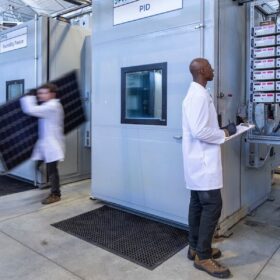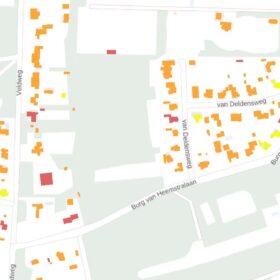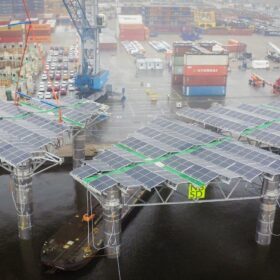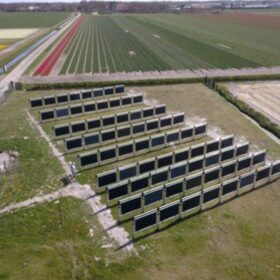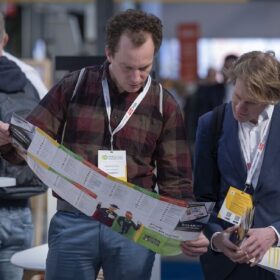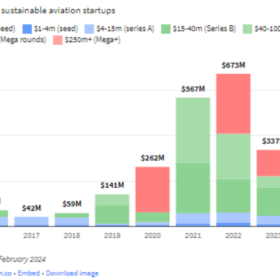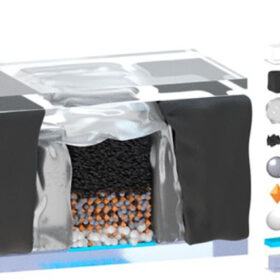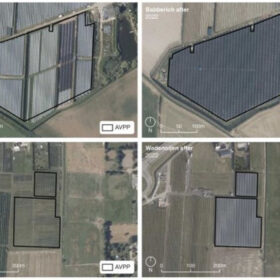PI Berlin, PVEL, Extel Energy unite under Kiwa brand
PV Evolution Labs (PVEL), Extel Energy, and PI Berlin have unified under the Kiwa brand. Dutch company Kiwa, which has acquired the three PV testing laboratories over the past three years, says it aims to more effectively present its range of services for the solar industry.
Netherlands identifies 725 km2 of solar-suitable rooftops
The Dutch government, through a new open-access PV database, has discovered that approximately 50% of all rooftops in the Netherlands could potentially host PV systems. However, only 8% of them could immediately accommodate solar arrays without the need for obstacle removal.
Bureau Veritas certifies SolarDuck’s offshore PV platform
Certification specialist Bureau Veritas has awarded what is says is the world’s first prototype certification for a floating offshore solar solution. It will now be deployed in the North Sea, off the coast of The Hague.
Netherlands approves ‘capacity limitation’ contracts for wind, solar
The Dutch authorities have approved “capacity limitation” contracts, allowing owners of PV and wind power assets to inject less electricity into the grid during peak times for “reasonable” remuneration, but standard contracts will be crucial for wider adoption.
Dutch PV additions hit 4.82 GW in 2023
The Netherlands deployed 4.82 GW of new solar capacity in 2023. The country’s cumulative installed PV capacity hit 24.4 GW at the end of December.
Key takeaways from Solar Solutions Amsterdam
Volatility in the global PV market did not go unnoticed this week at the Solar Solutions Amsterdam trade fair. However, the prevailing impression is that the Dutch PV market is poised for stability.
New model to calculate energy yield in east-west vertical bifacial PV plants
A Dutch research team has created a new approach to simulate the performance of vertical bifacial photovoltaic farms. The novel methodology considers design parameters and energy market conditions.
Decarbonizing aviation attracts venture capital
Since 2016, some $2.4 billion worth of venture capital flowed to companies developing electric aviation and other air travel decarbonization technologies with a strong start in investment volume in 2024, according to Dealroom.co, a Dutch data and intelligence firm.
New tech to remanufacture recycled perovskite solar cells
An international research team has developed a novel way to remanufacture fully encapsulated perovskite solar cells after recycling. The researchers say the devices can achieve 88% of the original efficiency of the products.
Landscape change indicators for agrivoltaics
Dutch scientists have developed new landscape change indicators (LCIs) for agrivoltaic projects. The novel methodology is meant to assist policymakers and project developers mitigate the visual and environmental impact of agrivoltaic facilities.
